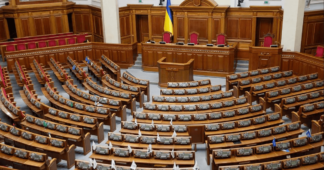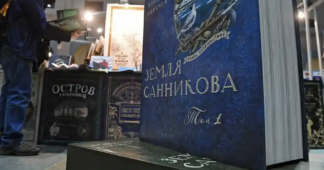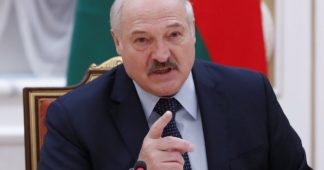Kiev’s language ombudsman has called for strict measures to combat smuggling of banned literature into the country
RT
Jan 13, 2024
The illegal import of Russian literature poses a threat to Ukraine, the country’s language ombudsman claimed a post on his official Facebook page on Friday. Taras Kremen also expressed regret at the lack of state-owned publishers and printers, which means the government has no control over book production in the country.
Kiev has banned the sale and distribution of all Russian-language books inside the country, along with the import of any literature printed in Russia and Belarus, with the exception of those that were written by former Russian and Belarusian citizens before 1991, subject to special government approval.
Kremen claimed that the ‘smuggling of Russian-language imports, including banned literature, is a huge threat to the national interest of Ukraine.’ He stressed that although the market is not large, the government should do everything within its power to prevent it from growing.
‘The sooner we block this, the stronger our standing will be both domestically and internationally,’ the ombudsman said.
He criticized Ukraine’s Ministry of Culture for ‘not having the opportunity or the time’ to approve a state program to support the national language, which would include book printing – calling it an important source of revenue.
In recent years, Kiev has adopted a number of laws making the use of the Ukrainian language obligatory in almost all spheres of public life, including in government, medicine, science, education and the media. Failure to comply with the laws can result in fines.
Following the launch of Russia’s military campaign in Ukraine in 2022, Kiev doubled down on its de-Russification campaign, with top officials calling for the complete removal of the Russian language nationwide, ‘as an element of hostile propaganda and brainwashing of the population.’
Lawmakers have since imposed complete bans on Russian-language works of art, performances, films, songs, and books, and have also outlawed the study of Russian in schools and universities.
Moscow claims that such laws violate the rights of Russian-speaking people, who make up around half of Ukraine’s population.
We remind our readers that publication of articles on our site does not mean that we agree with what is written. Our policy is to publish anything which we consider of interest, so as to assist our readers in forming their opinions. Sometimes we even publish articles with which we totally disagree, since we believe it is important for our readers to be informed on as wide a spectrum of views as possible.











